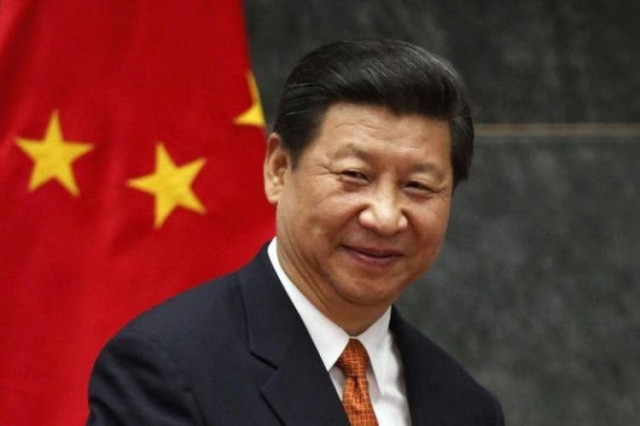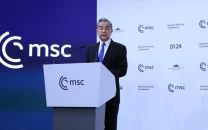China makes defaming revolutionary heroes punishable by law
A Chinese court ordered a former magazine editor to publicly apologise last year for two articles written in 2013

Under Xi, attempts to reevaluate the core events and characters of the party's revolutionary narratives have been met with fierce resistance
PHOTO; REUTERS
President Xi Jinping has ushered in a series of laws in the name of protecting China and the ruling Communist Party from threats both within and outside the country, as well as presiding over a crackdown on dissent and free speech.
China urges Pakistan to solve Chinese citizen's killing
China's largely rubber stamp parliament introduced legislation to protect the name, image, reputation and honour of the country's historic heroes and martyrs, the official Xinhua news agency said.
"It is prohibited to misrepresent, defame, profane or deny the deeds and spirits of heroes and martyrs, or to praise or beautify invasions," according to Xinhua's summary of the law.
Those who do so will be punished in accordance with the law and may be investigated for criminal responsibility, Xinhua added.
The party has long kept a tight grasp of its history, with its legitimacy resting in part on victories over the Japanese forces in World War Two and over the Nationalists to end China's civil war in 1949.
IMF head warns China on exporting debt through 'Silk Road'
Under Xi, attempts to reevaluate the core events and characters of the party's revolutionary narratives have been met with fierce resistance and the party warns scholars repeatedly to shun 'historical nihilism'.
Heroes and martyrs who gave their lives to the parties various causes fill museums across China and are featured in school textbooks to impart lessons of valour, loyalty and patriotism.
China says no 'backroom deals' in new Silk Road initiative
Disputing party history and questioning the deeds of heroes have already landed some historians in court.
A court ordered a former magazine editor to publicly apologise last year for two articles written in 2013 questioning the details of a well-known story about Communist soldiers fighting the Japanese in World War Two.


















COMMENTS
Comments are moderated and generally will be posted if they are on-topic and not abusive.
For more information, please see our Comments FAQ